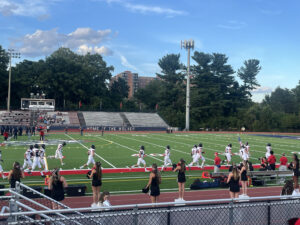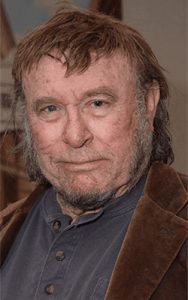When Caitlyn Knittig was nine years old, she was sexually assaulted.
At the time, she had no idea what sexual assault was. They didn’t teach it in school. It didn’t come up in conversation.
Now the survivor has made it her mission to make sure that other children won’t suffer the same fate.
Knittig told her inspiring story last Saturday at Washington-Lee High School in Arlington as part of the first-ever community event for We Support the Girls, a non-profit organization in Falls Church dedicated to supporting victims of sexual assault, increasing community awareness and advocating for better education on the topic.
U.S. Rep. Donald S. Beyer Jr., who represents the 8th District of Virginia that includes the City of Falls Church, gave the keynote speech and the event was moderated by Peggy Fox, reporter and anchor from WUSA News Channel 9.
Falls Church City Mayor David Tarter was one of many community members in attendance.

Speaking alongside panelists who included sexual abuse advocates, mental health professionals and nonprofit leaders from around the area, Knittig detailed the dire need for child sexual abuse education at an early age.
“I waited three days before I was brought in and questioned,” the high school sophomore told the audience. “After about an hour or two talking to a detective, I finally went out and told her what had happened to me. But I really didn’t know what happened to me. It’s hard to explain what happened when you don’t know.”
We Support the Girls was launched in October 2015 by Falls Church resident Rob Hof as a way to show support for Knittig and three other young girls who were sexually assaulted by prominent local community member, Michael Gardner.
With all the attention on Gardner during 51 months of trials, investigations and retrials, Hof believed that the girls needed the community to show them that they did the right thing in coming forward.
So Hof and others made hundreds of red signs for Falls Church residents to put on their lawns to display their support.
Fifteen months later, We Support the Girls has moved from a cohort of supportive City residents to a grassroots organization pushing for new legislation on sexual abuse education, while building a community that understands the signs, symptoms and prevention techniques.
This knowledgebase is crucial, said panelist Jennifer Alvaro, a mental health therapist with Arlington County Child and Family Services, because “sexual abuse is religiously democratic,” affecting rich and poor, white and black, immigrants and the disabled.
“It’s extraordinarily common,” Alvaro said, citing statistics that one in 10 children will be sexually abused before the age of 18.
And the majority of these victims live alone with this pain.
According to the non-profit Darkness to Light, an organization dedicated to ending child sexual abuse, 60 percent of victims will never tell anyone that they were abused.
One reason, said panelist Angela Rose, founder and CEO of Promoting Awareness, Victim Empowerment (PAVE), is that victims of sexual abuse often deal with “profound feelings of self-blame and shame.”
With Knittig’s experience and these eye-opening statistics in mind, We Support the Girls has made education a cornerstone of its mission. The organization has lobbied state lawmakers to pass Erin’s Law, a bill that would mandate all schools in Virginia, Pre-K through 12th grade, to provide age-appropriate child sexual abuse awareness and education.
The law has already passed in 28 states but the Virginia bill recently died in committee in Richmond and will not reach the floor this legislative session.
Jennifer Knittig, Caitlyn’s mother and one of the organization’s leaders, stressed the importance of this event in turning interested community members into active participants pushing for change — particularly with lobbying elected officials to pass Erin’s Law.
“Community members want to know exactly what they can do, how they can get involved,” the elder Knittig said. “Because that’s the hard part. It’s like, ‘OK, now what? Now we had this event, which was wonderful, and we’re going to walk away and never go back?’
“I’m hoping we’ve given them tools to be involved and be engaged.”
As Caitlyn Knittig finished her remarks and descended from the podium, the entire audience stood and applauded.
She smiled.
Until she spoke up, Knittig felt like a victim.
“It’s when you move to help others,” she said, “you become a survivor.”
Correction: this story has been updated to clarify the details of Michael Gardner’s conviction












